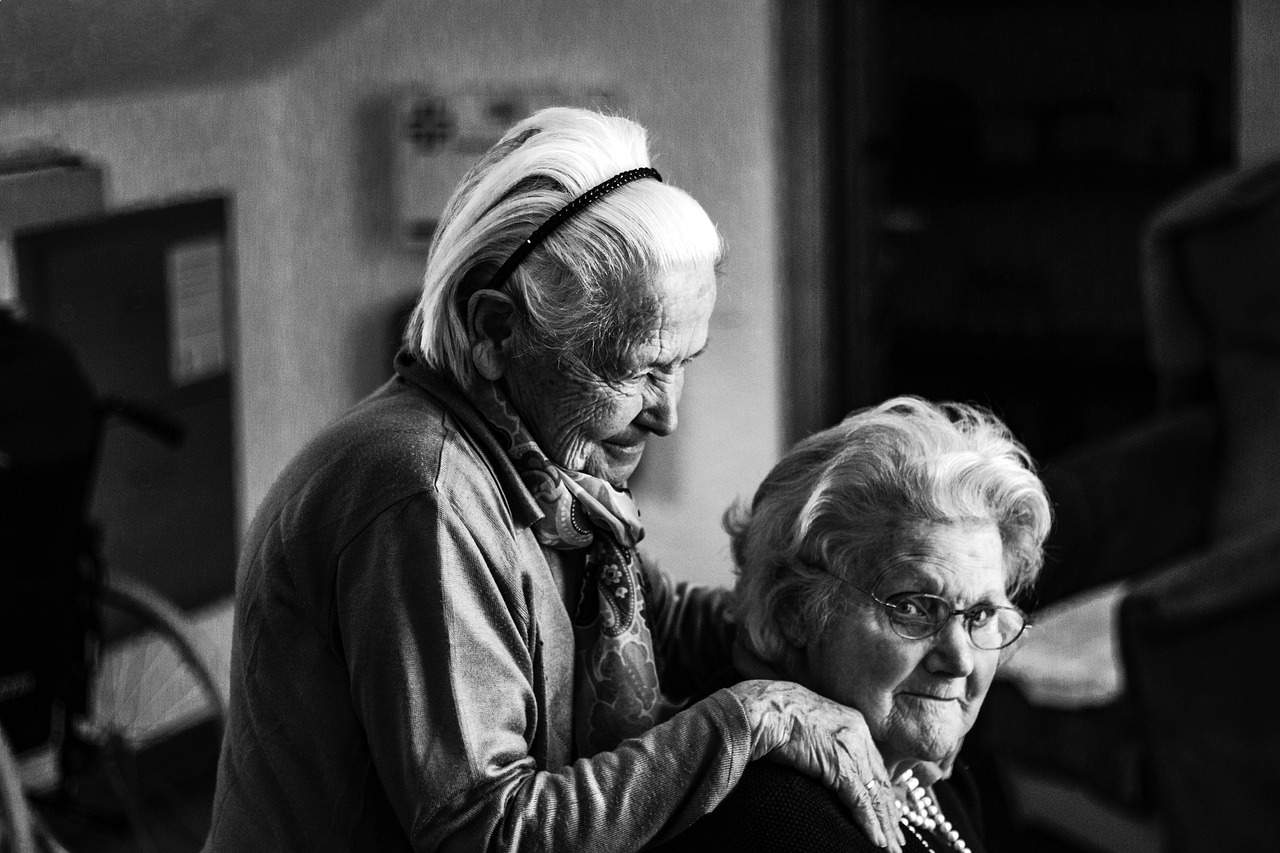Home care professionals near Mission Hills have the training, skills, and experience to provide physical and mental benefits for aphasia patients and their families.
There are many ways in which home care near Mission Hills helps those with aphasia.
What Is Aphasia?
Various injuries can damage the brain, sometimes permanently. An injured brain often leads to physical disability. Aphasia occurs when an injury damages the parts of the brain that are responsible for language.
The most common brain injury is a stroke. Other injuries such as a blow to the head, infections, and tumors can result in brain damage. Neurodegenerative diseases like Alzheimer’s also lead to language impairments.
The language centers are primarily in the left half of the brain. Injuries to the right half of the brain can lead to aphasia as well as other problems. Aphasia by itself does not affect intelligence.
The language difficulties of aphasia are:
- Loss of the ability to speak
- Loss of the ability to understand what others say.
- Loss of the ability to read and write
Therapy combined with home care near Mission Hills helps aphasia patients recover some of their losses.
Is There More Than One Kind of Aphasia?
Aphasia falls into two broad categories, based on what regions of the brain are damaged.
These are:
- Fluent: Afflicted individuals can speak, but what they say isn’t intelligible. They also have difficulty comprehending the speech of others.
- Non-fluent: Afflicted individuals have difficulty speaking, but usually understand what others are saying.
The categories are further described as follows:
- Wernicke’s aphasia – spoken sentences seem fluid and complete, but most of the words are nonsensical. Patients often can’t read or write.
- Broca’s aphasia – speech consists of short phrases uttered with an effort. Patients can understand others, can read, but usually can’t write.
- Global aphasia – speech is severely limited. Words or phrases may be repeated incessantly. Patients are also limited in understanding the speech of others and are unable to read or write.
- Anomic aphasia – speech sounds normal, but patients are often unable to name objects despite knowing what the object is. They understand what others are saying and can read. The difficulty in naming objects affects their writing.
Primary Progressive Aphasia differs from other aphasia types in that it isn’t caused by an injury. It’s the result of brain deterioration from diseases that damage nerves or blood vessels. As well as aphasia, the patient experiences other disease-related symptoms.
Communicating With An Aphasia Patient
Each type of aphasia requires expertise in communicating effectively with the patient. Mission Hills home care professionals have the knowledge to understand what the patient is trying to express. In that way, they ensure that the patient’s needs are met.
They know that it is important to:
- Speak slowly and carefully without “talking down” to the patient
- Eliminate background noise or chatter when speaking to the patient
- Avoid figurative speech because patients take those expressions literally
- Find other ways of communicating when patients don’t understand speech
They are able to evaluate how much a patient grasps of their communication efforts and modify as necessary.
Home Care Near Mission Hills Helps Aphasia Patients and Their Families
Aphasia can be treated. With therapy, some language skills can be recovered or relearned. Other communication techniques exist for those who aren’t able to effectively express themselves.
These techniques include, but aren’t limited to:
- Using hand gestures
- Drawing or pointing to pictures
- Using electronic devices
Home care near Mission Hills helps aphasia patients learn and practice the best technique for them.
Home care professionals recognize that each aphasia patient is unique. They customize their care to fit the individual. Their goal is to help each patient achieve as much independence as possible.
Compassionate home care specialists aid patients in overcoming embarrassment at their disability. Their experience allows them to recognize when their patients are depressed or unhappy. They know how to assist patients in seeing that life is good, even when they have difficulty with communication.
Home Care Helps Family Members Cope
Family members near Mission Hills are not left out of professional home care help. The caregivers teach family members how to communicate with patients. They create a win/win situation by reducing the frustration felt by both the patients and their families.
Family members can learn to:
- Not rush the patient’s efforts to communicate with them
- Respect the patient’s intelligence
- Include the patient in their conversations and activities
- Interpret the patient’s body language
It’s important for family members to avoid making comments that are patronizing or derogatory.
Because of their disability, aphasia patients often become isolated. Home care provides companionship but can do even more. Home care helpers can arrange social outings and assist in their patient’s interactions with others.
Some aphasia patients require 24/7 care. Home care near Mission Hills helps aphasia patients by giving everyone a break. Experienced home health caregivers allow families to relax without jeopardizing the safety of the patient.
Skilled home care offers many benefits to aphasia patients. Being able to live at home rather than going to a facility increases a patient’s degree of recovery. Patients and their families can learn new ways of effectively communicating with one another.

